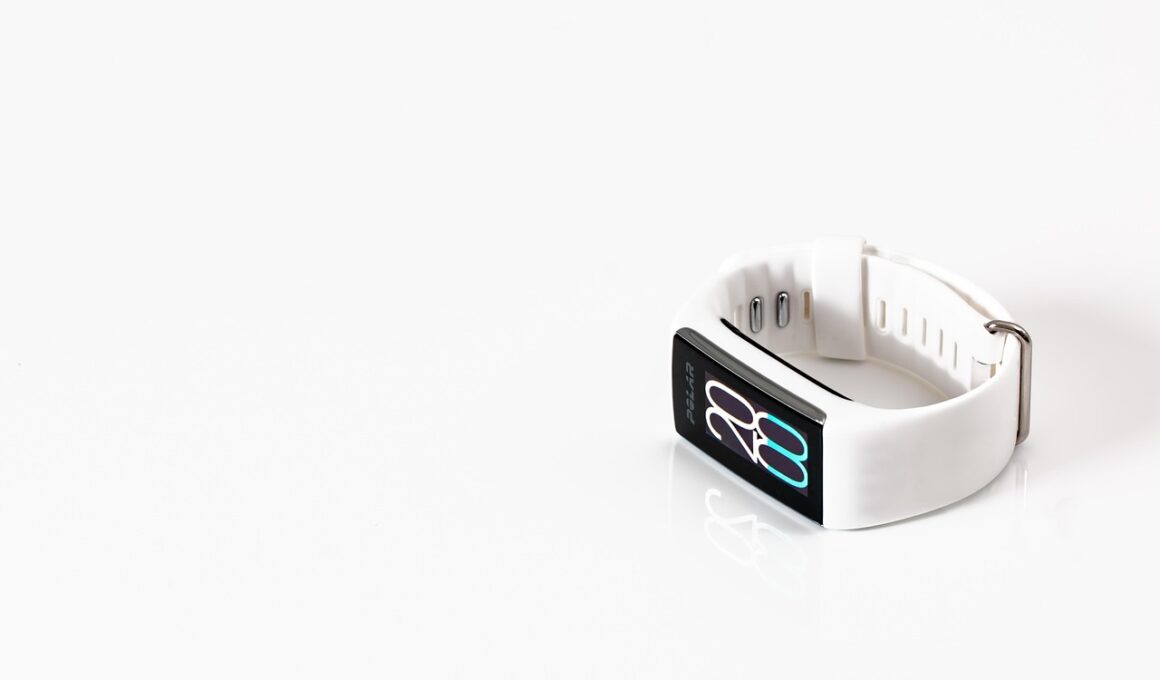Fitness Trackers for Women: Features Tailored to Female Health
In recent years, fitness trackers have become increasingly popular among women who want to take control of their health and wellness. These devices have evolved to include features specifically designed to cater to the unique needs of female users. Women’s fitness trackers typically offer functions that allow users to track their menstrual cycles, monitor ovulation, and assess overall reproductive health. Such features can help women gain insights into how their physiological changes affect their fitness levels. Moreover, many of these trackers come equipped with heart rate monitors, which can provide valuable data during workouts, ensuring that women are exercising within safe and effective heart rate zones. Along with standard fitness metrics like steps and calories burned, these trackers often include unique activity modes that capture data for workouts traditionally pursued by women, such as yoga and pilates. Overall, these tailored features are integral in encouraging women to stay fit and motivated while providing a comprehensive overview of their health. Consequently, understanding the unique functionalities can empower women in their fitness journeys, leading to better health outcomes.
Another critical feature of fitness trackers aimed at women is sleep tracking. Sleep is a fundamental aspect of health, and understanding sleep patterns can significantly impact overall well-being. Fitness trackers that monitor sleep provide metrics like duration, quality, and cycles, helping users identify trends that may affect their energy levels and training performance. Women often experience hormonal fluctuations that can disrupt their sleep, making this feature particularly beneficial. The best fitness trackers also send reminders to maintain hydration, which is essential for workout recovery and overall health, as women are traditionally more prone to dehydration. Moreover, notifications for workouts and personalized coaching based on user goals help keep women accountable and motivated. Users can receive alerts and reminders that encourage them to get moving, ensuring they stay on track with their physical activities. With technologies like smartphone synchronization, women can easily analyze their data for better planning. This seamless integration of fitness tracking technology into daily routines encourages healthier lifestyle choices, reinforcing fitness tracking’s role as a valuable partner in achieving personal health and fitness goals.
Design and Comfort in Fitness Trackers
A significant consideration for women when choosing a fitness tracker is design and comfort. Many brands have recognized the importance of aesthetics when tailoring products for female consumers. Devices that are too bulky or unattractive may discourage continued use, leading manufacturers to create slimmer, lighter designs that appeal to women’s preferences. Moreover, several fitness trackers for women come in various colors and styles, allowing for personalization that matches individual fashion senses. This trend underscored the importance of fashion alongside functionality, making fitness trackers not just a health tool but also a style accessory. Comfort is equally important; well-designed straps made from flexible materials can enhance wearability. Many devices also incorporate smartwatch features, such as call and text notifications, further increasing the utility of these fitness trackers. Additionally, some brands offer customizable bands that allow women to change straps according to their outfits or moods. Thus, women can focus on their fitness journey while enjoying an accessory that looks great on their wrists, creating a positive association with regular exercise and health monitoring.
Another notable aspect of fitness trackers for women is their connectivity with other health apps. Many modern fitness trackers are designed to sync with popular health and wellness applications, enabling comprehensive monitoring of health data. This connectivity allows users to integrate their nutrition, exercise, and health metrics into a single platform, which can simplify tracking overall wellness. Through these integrations, women can easily log food intake, set diet goals, and receive tailored meal suggestions that align with their fitness objectives. Furthermore, many fitness trackers provide insights into fitness trends by analyzing collected data over time. Having a clearer understanding of personal progress through regular reports can motivate women to reach their health goals. Some fitness trackers even offer community features that allow users to connect with friends and participate in challenges, fostering a supportive environment that encourages shared success. Thus, the synergy between fitness trackers and health apps for women enhances the tracking experience and promotes continuous engagement in their health journeys.
Battery Life and Durability
When it comes to fitness trackers, battery life and durability are crucial features that enhance usability. Women, often balancing multiple responsibilities, desire a device that lasts longer without the need for frequent recharges. Fitness trackers that boast impressive battery life can offer several days of monitoring on a single charge, reducing the hassle of recurring downtime. Such reliable performance is particularly beneficial during outdoor activities like hiking, where access to charging opportunities may be limited. Moreover, durability plays a significant role in choosing the right device. Many fitness trackers are now designed to be water-resistant, allowing women to wear them while swimming or engaging in high-intensity workouts without the risk of damage. The materials used in crafting these devices are also increasingly robust, ensuring they can withstand the rigors of daily wear and tear. In this evolving market, brands that prioritize both durability and battery efficiency stand out, ensuring their products meet the demands of active women looking for reliable health- and fitness-tracking devices.
Choosing the right fitness tracker involves understanding fitness goals and lifestyle needs. For women who prioritize specific activities, certain features may be more valuable than others. For instance, runners might look for devices equipped with GPS capabilities, while those focusing on strength training could prioritize rep counts and workout routines. As every woman has unique preferences, it is essential to explore various models and their functionalities. Some trackers might offer advanced metrics like VO2 max or lactate thresholds that cater to fitness enthusiasts. It’s also important to consider customer reviews and satisfaction ratings, as they can provide insights into how well these devices perform in real-life scenarios. Reliable customer support and warranty services can further enhance confidence in purchasing a specific device. Ultimately, the goal is to find a fitness tracker that not only fits feminine health needs but also aligns with personal style and exercise preferences. This process can be seen as both an investment in health and a supportive partner in their fitness journey.
The Future of Women’s Fitness Trackers
As technology continues to advance, the future of women’s fitness trackers looks promising. Integrating advanced features like artificial intelligence could provide personalized insights that are even more tailored to individual users. Imagine a fitness tracker that learns about your routines and preferences over time, adjusting recommendations accordingly. Furthermore, wearables that monitor hydration levels and alert users when they need to hydrate would enhance health management on a granular level. Companies are also exploring features that can predict health events based on historical data, offering proactive insights for better health decisions. These innovations underscore the potential of fitness trackers not just as passive monitors but as active health partners. Additionally, as social health and community-building becomes increasingly important, the opportunity for collaboration among users can lead to new growth opportunities. Overall, the evolution of women’s fitness trackers is likely to shift from simple tracking devices to comprehensive wellness platforms that address physical, mental, and reproductive health holistically, empowering women to take charge of their well-being.
In conclusion, fitness trackers tailored for women provide unique features that address specific health needs and preferences. By offering functionality aimed at improving understanding of female health, these devices have become essential tools in promoting active, healthy lifestyles. The key features such as cycle tracking, sleep monitoring, and integration with health apps significantly support women’s wellness journeys. Comfort, design, and battery life enhance usability, making them more attractive options for everyday use. As technology continues to evolve, the future holds even more possibilities for innovation in this space, including the potential for smarter, more responsive devices. Through community engagement and education about these health tools, more women can become empowered. Investing in a reliable fitness tracker is not just about tracking steps or calories; it is about understanding and improving overall health. Encouraging a culture of fitness where women feel supported and informed will only contribute to the effectiveness of these devices. In this ongoing journey, women should feel confident in making choices that positively impact their lives, including selecting the right tools to foster their fitness and health ambitions.


